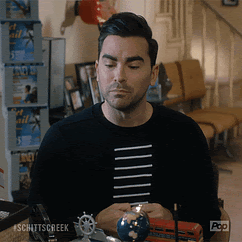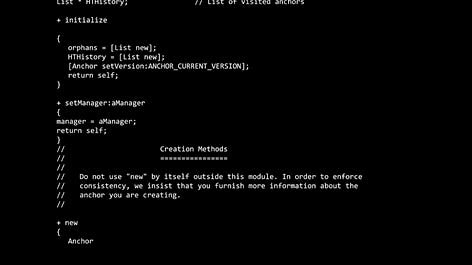Welcome to Ignition Lane’s Weekly Wrap, where they cut through the noise to bring you their favourite insights from the technology and startup world. Ignition Lane works with ambitious business leaders to apply the Startup Mindset to their technology, product and commercialisation problems.
This wrap goes out free to subscribers every Saturday. Don’t forget you can catch Gavin Appel discussing the week on the Startup Daily show on Ausbiz every Monday at 2pm. If you miss it, you can catch up on the week’s shows here.
Here’s their review of the week.
Ridesharing to space
According to a recent ACMA market study, the Australian space sector generated a sizeable $5.7bn in 2020 and could increase to $12bn per year by 2030. Our tech and capability is maturing, and the VC dollars are starting to flow.
Tiny satellites. SpaceX Falcon9 launched with Adelaide-based Fleet Space’s sixth nanosatellite Centauri 4 on board. Centauri 4 is the size of a shoebox, has 3D printed antennas and digital beamforming technology. It is Fleet’s most advanced payload and the culmination of years of work:
This is a major achievement to incorporate this tech in a nanosat payload due to their power and volume constraints, and will allow substantial increases in throughput of customer data, service a higher number of customer portals at once, and increase data reliability and security by reducing the impact of interference.
Fleet’s smallsats are being used for the development of remote, massive, IoT applications, on the Earth, the Moon and Mars.
Space edge computing. Sydney’s Spiral Blue launched two of its image processing computers into orbit aboard Virgin Orbit’s LauncherOne rocket – the maiden flight of Richard Branson’s satellite taxi service.
Rocket fuel. Gilmour Space raised $61m led by US VC Fine Structure Ventures (Fidelity Investments) and backed by local investors including Blackbird and Main Sequence – the largest private raise by a space company in Australia. Another week, another record. Its hybrid rocket uses safer and lower cost fuels compared to traditional chemical propulsion rockets.
It will help us develop multiple Eris vehicles, grow our team from 70 to 120 in the next 12 months, build our sovereign space manufacturing capability for rockets and satellites, and facilitate a commercial spaceport in Queensland, where we hope to launch the world’s first hybrid rocket to space.
Edtech investment, acquisition & IPO
Perfect PE. MegaUS private equity firm KKR is acquiring a majority stake in NZ-based Education Perfect in a deal valuing the company at NZ$455m (14.7x revenue). This is KKR’s second NZ play – earlier this year it acquired a majority stake in contract research and manufacturing organisation that specialises in animal health, Argenta. Education Perfect is an education and teacher toolkit with over 35,000 smart lessons and assessments, automated marking, feedback, lesson planning and data analysis.
Education Perfect started life as a basic translation tool called Language Perfect where students would fill in words when prompted. Craig Smith developed the first edition while at secondary school to help him and his classmates learn languages. Education Perfect is now used by around 1 million students and and 50,000 teachers in more than 50 countries and booked revenue of NZ$31m and after tax profit of NZ$3.3m in the year to December.
Education Perfect, Timely, Vend, Seequent, ezyVet, Ninja Kiwi – 2021 has been a fruitful year for NZ tech!
A MOOC point. Harvard and MIT-founded nonprofit edX is being acquired by 2U, a for profit SaaS platform that helps nonprofits and colleges run online universities, in a $800m deal – a great content and branding move for 2U. EdX was founded in 2012 when massive open online courses (MOOCs) took off – Udacity and Coursera were founded at a similar time. Over the years Harvard and MIT have contributed $80m in donations to keep it free for its 35 million users. MIT’s president L. Rafael Reif suggests its nonprofit status is hindering edX’s impact:
Covid drove an explosion in remote learning, which spurred huge investments into edX’s commercial competitors. This put edX, as a nonprofit, at a financial disadvantage. This new path recognizes this reality and offers a solution that allows edX to continue to support and maintain the key aspects of its mission.
By comparison, Coursera (founded by Stanford University profs) went public at the end of March, is now valued at $5.3bn and has 77 million users.
Oferta pública inicial (that’s IPO in Spanish). Duolingo a Pittsburgh-based language learning business last valued at $2.4bn, also filed to go public. Quick numbers:
- $162m revenue (up 129% YoY) and $200m revenue run rate (up 100% YoY)
- Revenue breakdown: 73% subscription, 17% advertising, 9% English test; 1% in-app purchases
- 36.7m monthly active users (up 35% from 2019)
- 1.6m paying subscribers (up 77% YoY)
- 73% gross margin
- Only four employees, or 2% of its workforce left the company in 2020 – a “record low”
- Raised $183.3m to date
How’s this for a CEO prospectus letter?!
Local fundraising, dealz & ASX-ing
Nitro is acquiring PDFpen for $6 million. Nitro develops software to store, convert or sign documents. PDFpen is a suite of PDF productivity applications for Apple Mac, iPhone and iPad devices, including digital signatures, Optical Character Recognition (OCR), PDF editing and cloud storage.
Two overpriced ASX freshies? Camplify and PEXA listed on the ASX, each ending their first day of trading near the original listing price – Camplify down 1.4% at $1.40 and PEXA up 0.1% at $17.15. Some bankers might call that overpriced (they often price for a 10-15% pop). Others would say it was priced like Kellogg’s – just right. At $3bn, PEXA’s float was the biggest since 2018. It is Australia’s only online property settlement platform. Camplify is a peer-to-peer online marketplace connecting recreational vehicle (RV) owners to hirers.
Marama Labs raised NZ$1.25m co-led by US VC Quidnet Ventures and New Zealand Growth Capital Partners. Its chemical analysis tools give industrial customers (e.g. wineries) unique chemical insights on their products. Marama Labs analytics then helps customers control and optimise their production processes – helping them to craft the flavour and colours that their customers prefer. Maybe Marama’s tech would have come in handy for the world’s biggest wine conman?
HowToo raised $2.5m. Its software lets organisations create digital courses from their own in-house knowledge.
Life360 raised US$2.1m in a ‘celeb/influencer round’ led by Bryant Stibel – the investment group founded by the late Kobe Bryant and Jeff Stibel. Others in the round included Vanessa Bryant, Joanna and Chip Gaines, Tony Hawk, Jada and Chris Paul, TikTok influencer Billy Perry, and Nicole and Michael Phelps. Life360 is used by families to keep track of their kids’ locations. The company is San Francisco-based and has already raised over US$90m (including funding from both Facebook and Google) before listing on the ASX in May 2019, when it raised a further AU$145m.
Toku Eyes raised NZ$3.6m to improve early detection of eye diseases such as macular degeneration, diabetes, glaucoma and cardiovascular risk factors that manifest in the eye.
Tracer DAO raised US$4.5m. Tracer is being built by Brisbane-based Mycelium. The project will enable users to place leveraged bets on any market in the world using perpetual swaps.
DAO stands for decentralised autonomous organisation – explained here. Investors purchased governance tokens that provide rights to make decisions on the rollout of the technology.
Jigspace raised US$4.6m led by Rampersand. The JigSpace ‘Canva for 3D’ app is free to use – anyone can combine presets and templates of 3D modelled objects to create their own Jigs. Its Jig Pro platform (featured in Apple’s iPhone 12 Keynote) is designed for commercial businesses and manufacturers. JigSpace also partnered with Snap to create a Lens that allows you to scan kitchen items and see how things work. Part of the Startmate MEL18 cohort.
Mindset Health raised $6.7m. Mindset partners with world-leading researchers and experts to make evidence-based hypnosis programs available via an app. Its flagship IBS solution (Nerva) has exploded and now its turning its sights to menopause, chronic paid and depression. Another Startmate MEL18 cohort.
Wimp 2 Warrior raised $7.5m for its marketplace that delivers mixed martial arts (MMA) programs from 140 gyms around the world.
Currus Biologics raised $10m for the further development of its novel cancer immunotherapy that targets solid tumours such as breast and pancreatic cancers.
Albert family launched a $16m impact investing fund for early-stage start-ups in the fields of music and entertainment, mental health, environment and sustainability and equality. The Albert family are behind AC/DC’s founding music label.
Around the world
Pass go, collect $1 trillion. Facebook’s market cap surpassed $1 trillion for the first time this week, after a federal judge dismissed an antitrust complaint from the US FTC. The judge described the FTC’s complaint as “legally insufficient” in making the case that Facebook has monopoly power.
If we consider only 2010-2020, it gets even funnier as Domino's has grown more % than Amazon, Apple, Facebook and Google combined. pic.twitter.com/wmAx9v7Rov
— Maciej Budkowski (@MaciejBudkowski) June 27, 2021
That’s a pop. ‘LinkedIn for Doctors’ Doximity listed on the NYSE. The company saw its market value double to $10B in just two days of trading. Founded in 2009, Doximity is a social network for doctors. It has 80%+ of US physicians on its platform and revenue of $200m+ in 2020.
Accel has three new funds totalling $3.05bn to back companies in the United States, Europe and Israel. Accel has a solid track record, including Slack, Bumble, UiPath, CrowdStrike, PagerDuty, Deliveroo, Squarespace, Qualtrics, Segment and Plex (acquired last week for $2.2bn).
Robinhood’s IPO. Launched in 2013 with a mission to “democratize finance for all,” zero commission trading app Robinhood filed to go public. Secondary share sales in February valued the company as much as $40bn. Robinhood’s cofounders stand to make billions in the IPO. Quick numbers:
- $958.8m revenue in 2020 (up 245% YoY) and $2b revenue run rate as at 1Q21
- $522m revenue in 1Q21 (up 309% YoY) – 2/3 of that came from option and crypto trading
- Profitable in 2020 with net income of around $7.4m. But… the most recent period includes a gigantic $1.49bn cost relating to “change[s] in fair value of convertible notes and warrant liability” after its $3.4bn raising in February, leading to a net loss of $1.44 billion in 1Q21.
- 18 million funded accounts (up 150% YoY)
AWS is acquiring Wickr. Financial terms were not disclosed. Wickr had raised just under $60m in funding to date. Is this a delayed, big play into the messaging space?
You can’t buy the web, but someone bought Sir Tim Berners-Lee’s original web browser source code NFT for $5.4m.
That’s a wrap! We hope you enjoyed it.
Bex, Gavin and the team at Ignition Lane
Watch Gav on AusBiz at 2pm on Monday, when he opens the Startup Daily TV show
























Trending
Daily startup news and insights, delivered to your inbox.